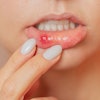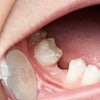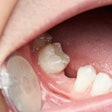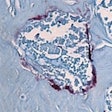
A woman with lifelong oral ulcers but no gastrointestinal symptoms was diagnosed with celiac disease, suggesting that oral manifestations may be a sign of the chronic immune disorder. The case report was published in Oral Surgery, Oral Medicine, Oral Pathology and Oral Radiology.
The 42-year-old woman's diagnosis was confirmed from lab tests, and her ulcers had gone away once she began a gluten-free diet, wrote the author, Dr. Richard J. Vargoa, of A.T. Still University in Kirksville, MO.
"Clinicians should remember that the absence of gastrointestinal symptoms does not preclude the diagnosis of celiac disease," Vargoa wrote (Oral Surg Oral Med Oral Pathol Oral Radiol, July 13, 2024, Vol. 138:2, E40-E41).
Globally, an estimated 1 in 100 people are affected by celiac disease, a condition in which ingesting gluten damages the small intestine. Despite the high estimated occurrence of the disease, only about 30% are properly diagnosed, according to the Celiac Disease Foundation.
A 42-year-old female with aphthouslike ulcerations
The woman had multiple aphthouslike ulcers involving her keratinized and nonkeratinized oral mucosa and most often on her dorsal tongue. The ulcers were chronic, and no therapies helped, including avoiding toothpastes containing sodium lauryl sulfate. She reported no systemic symptoms, including any gastrointestinal problems, according to the report.
In addition to the ulcers, an oral exam revealed demarcated opacities consistent with enamel hypoplasia on her teeth. Due to these symptoms, she underwent lab tests to assess her for systemic disorders, Vargoa wrote.
She tested positive for tissue transglutaminase antibody IgA (>250.0 U/mL (> or = 15.0 U/mL)) and tissue transglutaminase antibody IgG (18.8 U/mL (> or = 15.0 U/ mL)). Also, she underwent an endoscopy, which confirmed a diagnosis of celiac disease.
Once she started a gluten-free diet, her ulcers resolved. The ulcers only returned when she accidentally consumed gluten, according to the report.
"Clinicians should remember that multiple aphthous-like ulcerations may suggest an occult systemic disease, especially when they involve keratinized oral mucosa," Vargoa wrote.



















